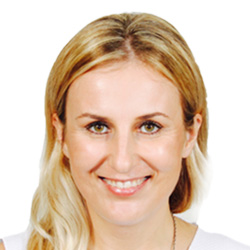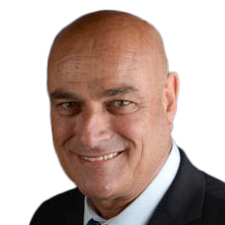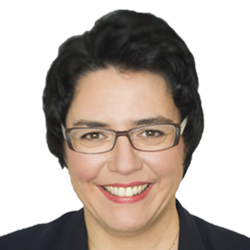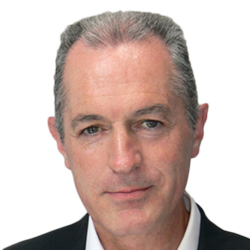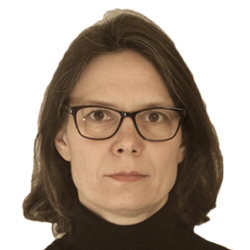Commercialization and Democratization of Earth Observation
In this era of Space 4.0, the commercial market for earth observation data and services has seen a substantial growth. In 2017, this market was worth $50 Billion and is expected to reach $75.9 Billion by 2020 at a CAGR of 14.9% (GeoBuiz-18 report). Additionally, the downstream segment i.e. the Value-added-services (VAS) segment, is expected to grow from US$28.3 Billion in 2017 to a projected US$ 42.3 Billion by 2020. This use of satellite imagery across varied economic sectors and broad range of new applications, lower technology barriers and the emergence of startups in the imagery/map analytics market has brought immense diversity in the market. Additionally, as the supply of earth observation rises, the implications on new business models, and flexibility licensing terms for commercial imagery pushes the boundaries of the earth observation segment towards commercialization.
Along with this, ‘Democratization of Earth Observation’, is a silent revolution in the space domain. Essentially, this implies that more people and organization are participating in the earth observation segment. The industry is, thus, moving towards providing unhindered and near universal access of earth observation data and services at affordable price, in easy formats and platforms within ecosystems that attracts third party investments and innovation that significantly broadens the application of earth observation across all sectors.
The Commercialization and Democratization of Earth Observation is an exclusive two days program with dedicated sessions deliberating on the newspace revolution – upcoming technologies and business milestones, altering business models, enabling policy and legal frameworks, data collection and sharing, satellites and commercial applications of space, and national strategies for EO private sector development and the future outlook.
Speakers

Col. Ali Al Shehi Commander
Space Reconnaissance Centre
UAE

Seraphim Capital
United Kingdom
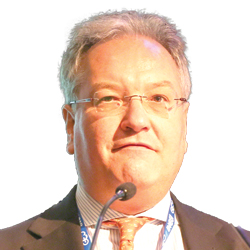
Max Craglia Team Leader, Digital Economy
Joint Research Centre
European Commission

European Association of Remote Sensing Companies
Belgium
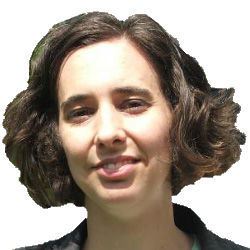
Pixalytics Ltd
United Kingdom

IMGeospatial
United Kingdom
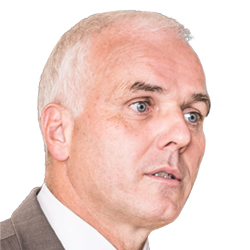
Maurice Borgeaud Head of Science Applications and Climate Department
Directorate of Earth Observation Programmes
European Space Agency
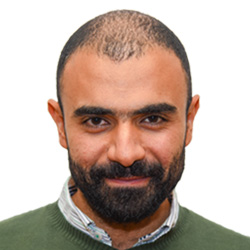
OpenIG/University of Montpellier
France

Victor Rijkaart Director Consulting Services
Government (Space), CGI Nederland BV
The Netherlands

VITO
Belgium

PinC Agro

Copernicus Space Office
European Space Agency (ESA)

Bora Beran Director of Product Management
Descartes Labs
USA

Satelligence
The Netherlands

Orbital Insight
United Kingdom
DISCUSSION THEMES
The commercial space industry has entered a new era of high-resolution, and multi-spectral satellite systems delivering an unprecedented quantity and quality of earth observation data, solutions and services in short timescales and services. With the advent of SmallSat and Nano-sats, the EO industry is organizing itself to provide disruptive solutions and services on a daily basis while creating infrastructure and platforms to provide integrated solutions to selected markets effectively and efficiently. Reduced costs, increasing capabilities and innovations, increasing value of space-derived data and exploitation of automated processing to increase information has opened up the market for space-based disruptive solutions and services. The panel shall discuss ground breaking innovations in technology and policies in the commercial space industry which are making the industry relevant to businesses and consumers alike.
The national and regional governments are responsible for defining and formalizing policies and strategies for the development of earth observation industry in their regions. The integration and initiatives at national, sub-national and regional levels and their due alignment with each other is imperative to understand the impact on industry development by way of innovation and entrepreneurial opportunities through incubation and accelerator programs. Additionally, it is imperative to understand if strategies and polices mandate and articulate the application of earth observation to provide benefits to the society. The panel shall deliberate on the need and examples of existing policies and strategies for EO industry development. In addition, the panel shall also include a release of report on, ‘Assessment of integration of national and sub-national strategies for EO industry development’, by the European Commission and Geospatial Media.
A radical transformation is happening in the EO industry as commercial companies with large budgets have entered the market with new possibilities and approaches. Until now, many of the EO operators have followed the historical business models, however, the new commercial entries in order to meet the market requirements, are supporting new business models based on downstream applications, image analytics, location-based services and asset tracking, etc. Such innovations in EO technologies are breaking constraints to shape strategies and business models. The panel in this session shall deliberate the type of new business models that will disrupt the EO industry in near future.
The earth observation industry, via cheap miniature satellites or Nano-satellites, and cheaper launches and ride-share opportunities, sensors and other input technologies are transforming the satellite data value chain while simultaneously revolutionizing how spatial information and data provides real-time insight of the Earth’s surface. Increasing access to earth observation data allows organizations to take immediate, informed action on today’s challenges, such as humanitarian efforts, environmental projects, rapid population growth, infrastructure, and security issues. The panel will discuss trends, benefits and challenges in democratizing access to earth observation data from varied perspectives.
The variety of data collected through earth observation creates tremendous commercial opportunities. The advancement of technology with highly accurate sensor specifications and enhancement of processing techniques is fueling the demand for commercial applications. The rise in number of commercial operators and service providers increases the array of available applications at a reduced cost. The emergence of new players, especially SME’s ensures that applications are being developed in the fields of constructions and transport, utilities, oil and gas, agriculture and renewable energies boosting economic growth. The panel in this session shall highlight case studies, deliberate benefits and future trends of utilizing commercial earth observation data, solutions and services.

In near future, Earth Observation will involve seamless integration of new technologies, sensing modalities and unconventional data sources. The explosion in demand, to meet the growing needs of global population, climate change, etc., ensures that as technology leaps forward, the Earth Observation industry too will head towards a revolutionary model imbibing different aspects of EO data capture. The future of EO is going to be about innovative solutions, developments and ideas that will impact businesses and society alike. Launched in 2011, the Copernicus Masters has been discovering the next generation of EO applications, providing a unique insight into the future trends from the entrepreneur’s perspective. Partners of the Copernicus Masters come together in this session to discuss their take on the Future of EO and how to get involved. A mix of institutional and industrial organizations, topics such as technology integration (AI, IoT, Big Data), and new technologies (Drones/UAVs) will be explored from different perspectives.
As technology continues to advance, earth observation giants worldwide are extensively applying Artificial Intelligence and Machine Learning for processing of daily satellite imagery, detecting and classifying objects, and for consistently monitoring even the most infinitesimal change. In 2017, AI and ML driven earth observation startups have raised more than $100 million – nearly three times more than in 2016. While Machine Learning presents better clarity and visualization of satellite imagery interpreting the picture from different vantage points – Artificial Intelligence, helps extract valuable insights from the growing abundance of satellite imagery presenting strong AI-driven data analytics for multitude of applications. The panel will discuss various AI-ML driven services and trends that is shaping up the exciting future of earth observation marketplace.
TARGET AUDIENCE
- Consultants
- EO data users
- EO data providers
- EO-based service providers
- EO-based startups
- Government space agencies
- Investors
- NGOs
- Policy-makers
- Research Institutions
- Satellite launchers
- Satellite manufacturers
- Satellite operators
- Space technology companies






